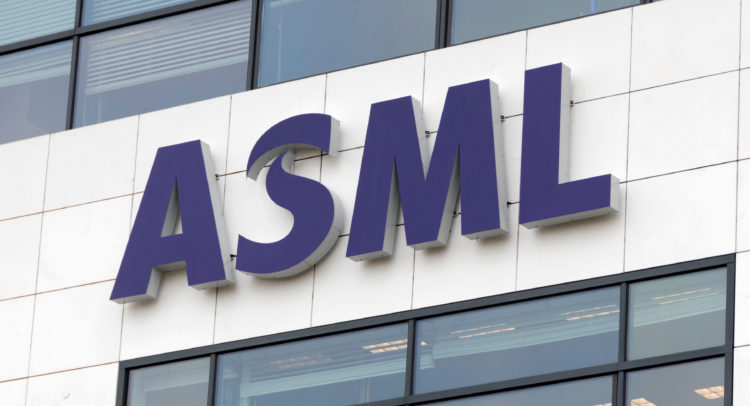
ASML, the leading equipment supplier to computer chip makers, is set to report a significant increase in new orders when its new CEO delivers the second-quarter results on Wednesday. As customers ramp up capacity to meet the growing demand for AI chips, analysts expect the company’s performance to reflect this surge.
- ASML expected to report a surge in new orders
- Focus on Chinese firms’ continued heavy purchasing
- Potential upgrade in company guidance
- ASML’s domination in the lithography systems market
- New CEO Christophe Fouquet at the helm
| Metric | Q2 2024 Expected | Q2 2023 Actual |
|---|---|---|
| Net Income | €1.41 billion | €1.94 billion |
| Revenue | €6.04 billion | €6.90 billion |
ASML, known for its advanced lithography systems, is poised to announce a substantial influx of new orders. Customers, particularly those expanding capacity for AI chip production, are driving this expected surge. Analysts predict that key chipmakers, including Taiwan’s TSMC, which produces chips for industry giants Nvidia and Apple, might ramp up and expedite their equipment purchases.
Kevin Wang, an analyst at Mihuzo, stated, “We expect ASML’s order received value to reach close to 5 billion euros in the second quarter, higher than consensus estimates.” He highlighted strong orders from TSMC for ASML’s EUV product line.
A critical aspect of ASML’s report will be the extent of Chinese firms’ continued heavy purchasing of equipment used to produce older generation chips. These chips are crucial for products like electric cars. Western policymakers have limited the purchase of more advanced technology, so Chinese companies have turned to ASML’s older equipment.
ASML may upgrade its guidance as major chip manufacturers increase and hasten their equipment orders. TSMC, a key player in cutting-edge chip manufacturing, relies on ASML’s lithography systems, especially those using extreme ultraviolet (EUV) wavelengths. These tools are essential for creating the intricate circuitry of the most advanced computer chips, including those used in smartphones and AI applications.
ASML dominates the market for lithography systems, which are vital for producing the tiny circuitry in computer chips. The company is the sole manufacturer of systems that use EUV wavelengths, crucial for the most complex chip designs. This technology is indispensable for leading chipmakers like TSMC to produce sophisticated chips for smart devices and AI applications.
The results mark the first quarterly report under ASML’s new CEO, Christophe Fouquet, who recently took over leadership of Europe’s largest tech firm. Fouquet’s tenure begins as the company navigates the ongoing US-China trade tensions impacting the chip industry.
ASML, valued at around 400 billion euros ($437 billion), has described 2024 as a transitional year. The company anticipates flat business performance this year, with a robust rebound expected in 2025 driven by demand for its most advanced tools. ASML shares have risen 45% this year, trading near record highs above 1,000 euros each.
Analysts project ASML’s second-quarter net income to be 1.41 billion euros on revenue of 6.04 billion euros, based on data from 16 analysts compiled by LSEG. This compares to a net income of 1.94 billion euros on revenue of 6.90 billion euros in the same quarter last year.
ASML had a 38 billion euro order backlog at the end of the first quarter. The company needs new orders worth 4 billion-6 billion euros each quarter to meet its 2025 sales forecast, which is projected to be at the upper end of a 30 billion-40 billion euro range.
The company’s machines, which can cost up to $300 million each, have delivery lead times of 12-18 months. Orders are meticulously coordinated with customers, including Samsung, Intel, and memory specialists SK Hynix and Micron.
For older generations of chipmaking technology, ASML faces competition from Japanese firms Canon and Nikon. Chinese companies, such as Shanghai Micro Electronics Equipment (SMEE), are also working to develop competing lithography tools. However, due to US-led export restrictions, Chinese chipmakers cannot access ASML’s most advanced tools. As a result, they have increased their purchases of older ASML equipment, accounting for nearly half of the company’s sales in the first quarter.
The rapid increase in Chinese purchases presents a challenge for non-Chinese firms, potentially leading to lost market share and increased competition. The European Commission is currently polling European chip industry firms to assess whether Chinese state subsidies are distorting the market.
ASML argues that the global demand for older chips remains significant, as demonstrated by shortages during the COVID-19 pandemic. The company emphasizes that China’s role in supplying these chips is crucial.
As ASML prepares to announce its second-quarter results, all eyes will be on the anticipated surge in orders, the continued purchasing behavior of Chinese firms, and the potential for an upgraded guidance outlook. Under the new leadership of CEO Christophe Fouquet, ASML is navigating a complex landscape, balancing significant market demand with geopolitical challenges.
Featured Image courtesy of Tipranks
Follow us for updates on AI chips.
